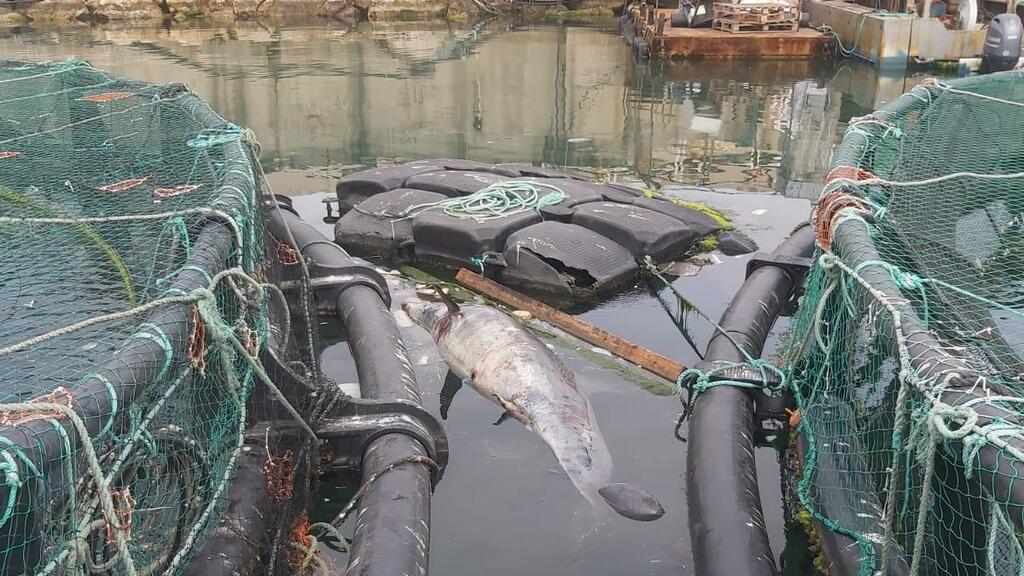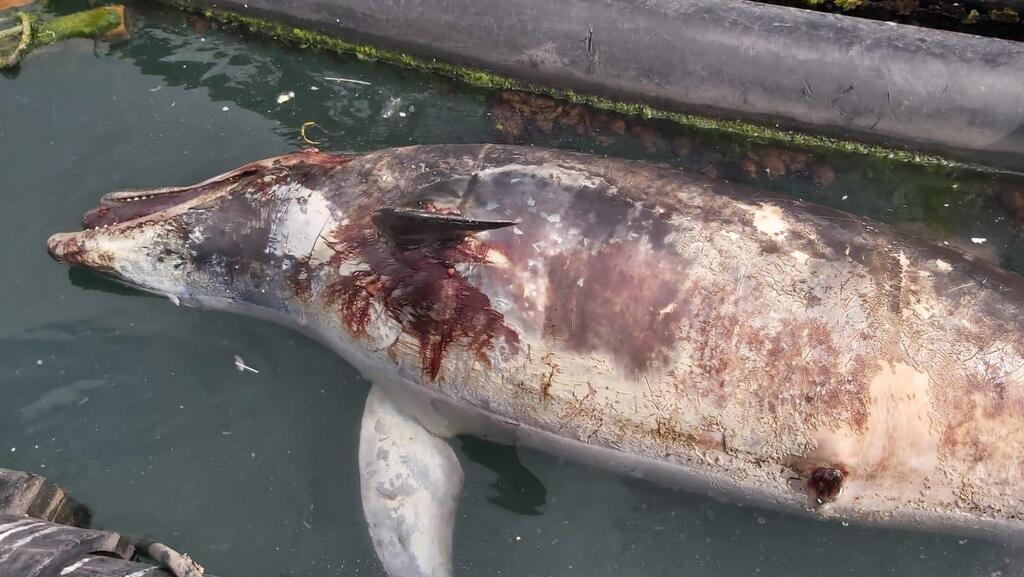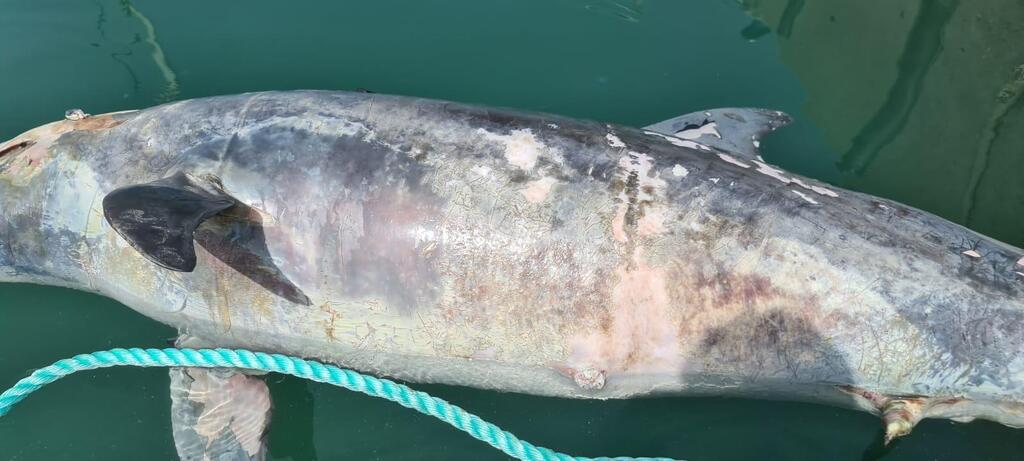Getting your Trinity Audio player ready...
The carcass of a dolphin was found in a fish farm in the Port of Ashdod on Monday morning.
In an autopsy conducted on-site, Dr. Aviad Scheinin — the chief scientist at the Apex Predators Principal Labs of the Morris Kahn Marine Research Station and head of the Dolphin and Sea Center — found that the mammal was a young male common bottlenose dolphin which measured at 2.4 meters (8 feet) in length.
The dolphin had rope marks around its dorsal and pectoral fins and deep bite marks on its back. By the time it was found, the mammal's carcass was already in an advanced state of decay.
Scientists collected skin tissue, fat and tooth samples from the carrion for further inspection.
Dr. Scheinin said that the dolphin most likely got enmeshed in a rope securing one of the ships docking at the port and the bite marks were probably caused by members of its pod attempting to free it.
The common bottlenose dolphin population in the eastern Mediterranean Sea across the Israeli coastline is estimated at about 300-400 individuals. Although not facing immediate risk of extinction worldwide, the subspecies is classified as vulnerable in the Mediterranean, with its prime risk being entanglement in fishing gear. Other risks include water pollution, waste consumption, and disruptions to its food chain.
In 2017, the Mediterranean Sea region near Israel's beaches was classified as an Important Marine Mammal Area (IMMA) by the International Union for Conservation of Nature (IUCN) largely thanks to frequent dolphin sightings by the Israel Nature and Parks Authority.
Over the past year, three dolphin carcasses were washed ashore in Israel on two different occasions. Their autopsies pointed to fishing nets being the probable cause of death.




